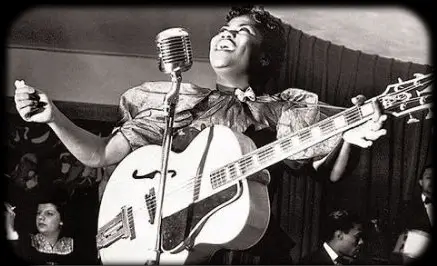GOSPEL MUSIC
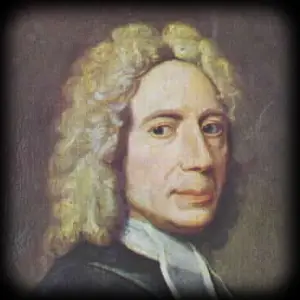
Dr. Isaac Watts.
The roots of Gospel music are buried deep in the 18th Century, when the African culture of slaves in the American South met with the Christian faith of the white population. The Church was keen to save the Souls of the Oppressed, but afraid of any exclusively black assembly becoming a focus for rebellion, so many communities encouraged shared services on the Sabbath. The services usually had dreary psalms as part of their worship, but during the religious 'Great Awakening' of the 1730s new, non-conformist hymns began to liven up the proceedings. An English minister Dr. Isaac Watts published his 'Hymns and Spiritual Songs' in Boston in 1739, and his lively tunes and themes of redemption and salvation were hugely appealing to the slave population. Further enduring hymns were introduced by John Wesley's newly-formed Methodist Church, and one of the most famous of these, 'Amazing Grace' was written by Rev. John Newton who, prior to his Christian conversion, was master of a slave ship.
Camp meetings and 'spirituals'.
The early years of the 19th Century saw the 'Second Great Awakening', where both black and white congregations would meet in huge outdoor 'camp meetings', when thousands would gather to hear hell-fire sermons, dramatic conversions and baptisms, and of course, mass singing. Beginning in Kentucky, these Jubilee Camps spread quickly across the country and would often turn into week-long extravaganzas, lasting long into the night. With their holiday atmosphere and righteous purpose, these early equivalents of the Rock Festival often attended by 20,000 people, but racial integration was not complete, as whites were usually seated while blacks would stand, enabling them to express their African derived 'ring-shouts' and shuffle dances, hand-claps and thigh-slaps. The black congregation would also use humming and 'moaning', not a sign of complaint but an indicator of joy and satisfaction.
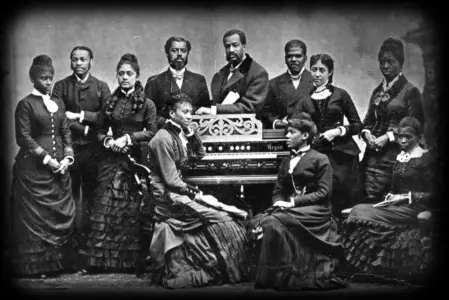
An early photo of The Fisk Jubilee Singers.
After Nat Turner's slave revolt in Virginia in 1831, the Abolitionist movement gathered momentum. The 'underground railway' was established by ex-slaves like Harriet Tubman and Frederick Douglass helping to liberate runaways, and Spiritual songs like 'Wade in the Water' (to avoid the bloodhounds!) 'Steal Away to Jesus', 'Go Down Moses' and 'Let My People Go' provided the voice of resistance. When slaves sang about crossing the River Jordan to the 'promised land' they meant the Ohio river and the Northern states. Only 10% of the 5m black population were free at the start of the Civil War, but at the end of the carnage The States were re-united and they undertook a massive project of 'Reconstruction'. This occupation of the South by the Military led to the formation of the Ku Klux Klan and its violent activities led to Congress passing laws to control them and other 'secret societies' in 1870. The following year saw the formation of the Fisk Jubilee Singers, 11 students from a Nashville college who went on tour to sing Spirituals and so raise money for their building project. They proved to be massively popular and the tour lasted for seven years, including a trip to Britain where they performed for Queen Victoria. Many imitators spread the sound of Spiritual choirs all over the country, especially in the South where increasing racial separatism led to the Jim Crow laws of the 1880s, enforcing social apartheid across many States. The deliverance from slavery largely resulted in the poor prospects of 'sharecropping' but no real share of civic power or amenities.
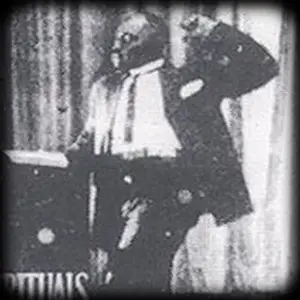
Rev. JM Gates.
Separate religious worship led to innovation in the African-American church, and at the beginning of the 20th Century they began to incorporate the new sounds of Jazz coming out of New Orleans, and the sound of the Blues spreading from its origins as the folk music of the Mississippi Delta. Although the 'Devil's Music' was not welcomed by all God-fearing people, it certainly influenced the development of Gospel music. The Dinwiddie Colored Quartet recorded some 'Camp Spirituals' in 1903, but that was an isolated example of non-white recording, because the industry didn't believe there was a market for spiritual or secular African-American music. When 'race music' took off as a genuine sector of the market in 1920, following the success of Mamie Smith's 'Crazy Blues', it quickly incorporated the work of many 'Straining Preachers' like Rev. JM Gates and Rev. JC Burnett, who released hundreds of three-minute sermons, usually accompanied by a choir in the 'Amen Corner'. Famous Bluesmen like Blind Lemon Jefferson (Deacon LJ Bates) and Charley Patton (Elder JJ Hadley) made religious records under alias, but genuine guitar evangelists like Blind Willie Johnson and the Rev. Edward Clayborn played Blues songs with exclusively religious themes, and their records sold well too.
Gospel choirs go national.
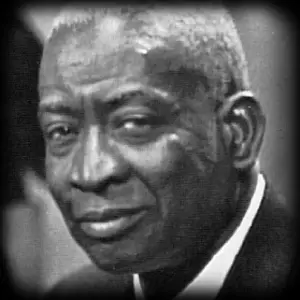
Rev. Thomas A Dorsey
A Georgia Bluesman called Tom Dorsey had a big hit record in 1928 with his partner Tampa Red; their rude 'hokum Blues', 'Tight Like That' typified the wild night-life of juke-joints and 'speakeasies' in those days, but a couple of years later Georgia Tom had a religious conversion, and when his wife and baby died in childbirth he dedicated himself to Gospel Music. He composed America's 'hymn of consolation', 'Take My Hand, Precious Lord' during his period of mourning and, as The Rev. Thomas A Dorsey, formed The National Convention of Gospel Choirs. Teaming up with singer Sallie Martin, he set up a powerful publishing company for Gospel music, and remained involved with the Convention until 1983. Rev. Dorsey was such a fine and prolific composer, the industry began to call any Gospel song a 'dorsey'.
The Dixie Hummingbirds rip it up at the Newport Festival;
The two decades following the end of WWII were the 'Golden Age' of Gospel music. Male quartets like The Kings of Harmony and The Famous Blue Jays led the way for hundreds of 'hard gospel' groups but The Golden Gate Quartet introduced a more up-beat rhythmic style. The Dixie Hummingbirds got started in the 30s, but when they signed for Don Robey's Peacock label in 1952, their record sales really took off. 'Hard harmony' groups like Julius Cheeks' Sensational Nightingales and Archie Brownlee's Five Blind Boys of Alabama could draw crowds of 40,000 and recorded dozens of big selling albums. Female groups like The Davis Sisters, The Caravans and Clara Ward's glamorous Ward Sisters became big showbusiness stars, with Marion Williams leaving her post as Clara's lead voice to form The Stars of Faith for Langston Hughes' stage show 'Black Nativity', as Gospel music gained mainstream recognition and worldwide sales.
Gospel and the roots of Soul.
Sister Rosetta Tharpe walked the borderline between Gospel and Blues, and one of Sallie Martin's protegées Ruth Jones found fame as Jazz star Dinah Washington, but others like The Mighty Clouds of Joy, and the sublime Mahalia Jackson herself, resisted the temptation of commercial riches. Sam Cooke made the cross-over into R&B and laid the foundations of Soul Music, while groups like The Staples Singers provided the soundtrack to The Civil Rights movement in the 60s. Aretha Franklin, James Brown, Al Green, Wilson Pickett and Billy Preston all took their Gospel roots into their later careers in Soul, Motown, R&B and Funk as other African-American forms began to dominate popular music.
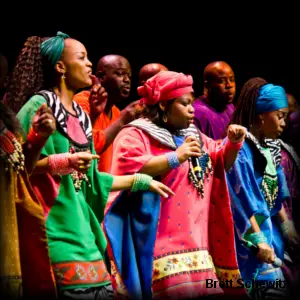
The Soweto Gospel Choir
While Gospel music was the inspiration for a lot of hit pop records from the 60s onwards, it remains the bedrock of Worship among the faithful today. This is true not just in The States, but all over the world, especially in Europe and Africa, where it continues to inspire singers of astonishing virtuosity to feats of almost divine vocal sweetness. Perhaps there is only one piece of music that could embody the outpouring of emotion that washed over the funeral of the assassinated Dr. Martin Luther King in 1968. Mahalia Jackson sang Rev. Dorseys 'Take My Hand, Precious Lord' and gave a measure of solace to the whole world.
